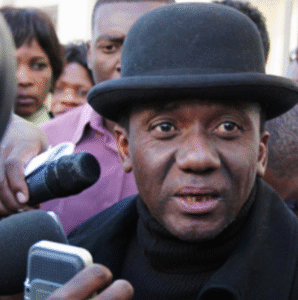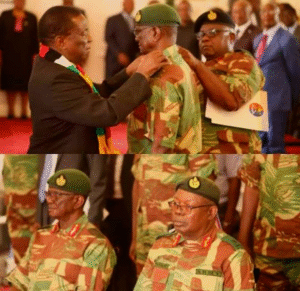Chivayo’s Grip on Zimbabwe’s Leadership exposed in a leaked voice recording

In a striking revelation that could rattle Zimbabwean politics, controversial businessman Wicknell Chivayo, known for his proximity to high-profile political figures, has claimed an unsettling level of influence over President Emmerson Mnangagwa. This assertion came to light through a leaked audio recording, raising grave concerns about governance and corruption in the country.
During a candid conversation, apparently captured without his knowledge, Chivayo boasts about his “vice-like grip” on Mnangagwa, suggesting that he can manipulate decisions at the highest levels of government. The businessman, often dubbed a ‘tenderpreneur’ due to his knack for securing lucrative government contracts, described how he has maneuvered himself into a position of considerable power, with the President supposedly under his control.
The context of this controversial claim traces back to a failed US$173 million solar project in Gwanda, where Chivayo’s company, Intratrek, received a hefty advance of US$5.8 million but failed to deliver any substantial results. The project’s flop didn’t just cost the government financially but also sparked a public outcry over the misuse of funds and the apparent impunity with which influential businessmen operate.
Further tightening the web of influence, Chivayo detailed his interactions with Mnangagwa, including an incident where he was personally escorted by the President on a red carpet to his flight bound for an international summit. Such gestures underline the disturbingly close ties between Chivayo and the Zimbabwean leader, transcending professional boundaries and veering into personal territory.
The leaked audio also disclosed Chivayo’s strategic movements across the African continent, from Uganda to Tanzania, not in pursuit of investment but to clinch more government tenders. This predatory approach to business, focusing on governmental contracts over genuine investment, underscores a broader pattern of behavior that prioritizes personal gain over national interest.
Chivayo’s influence reportedly extends beyond the President to other key political figures, including Vice-Presidents Constantino Chiwenga and Kembo Mohadi. His claims of having facilitated substantial financial gifts and even managing to weave his narrative into the personal lives of these politicians paint a troubling picture of Zimbabwe’s political elite.
Adding to the controversy, Chivayo admitted to using funds from another dubious deal, a US$40 million tender with the Zimbabwe Electoral Commission, to solidify his political connections. This deal not only padded his pockets but also allegedly enabled him to distribute luxury cars and cash gifts to garner support and loyalty within the ruling ZANU-PF party.
The response to Chivayo’s boastful admissions has been mixed, with some dismissing the recording as a deepfake. However, The NewsHawks, a local investigative journalism outlet, confirmed the authenticity of both the audio and the accompanying documents related to the electoral commission tender, suggesting a deep-seated corruption that is hard to deny.
As Zimbabwe continues to grapple with economic challenges and governance issues, the revelations about Chivayo’s influence are particularly disconcerting. They highlight the need for a rigorous reassessment of how government contracts are awarded and the extent to which personal relationships should intersect with official duties.
The unfolding scandal serves as a stark reminder of the potential consequences of unchecked power and influence in politics. For a nation striving for development and fairness, the entanglement of business and politics as depicted in Chivayo’s narrative threatens the integrity of governance and the democratic process itself.
This episode not only casts a long shadow over Mnangagwa’s administration but also poses critical questions about the future direction of Zimbabwe’s political landscape. The citizens of Zimbabwe, already weary of corruption and mismanagement, await decisive action and transparent governance, hoping that the leaders they entrust with power will prioritize the nation’s interest over personal gain.




